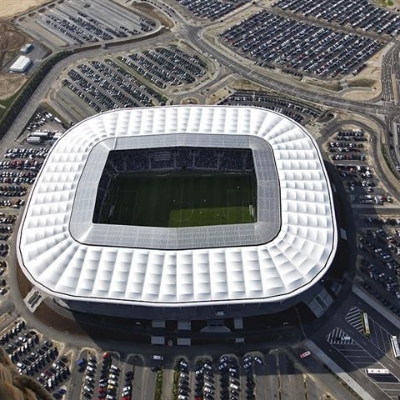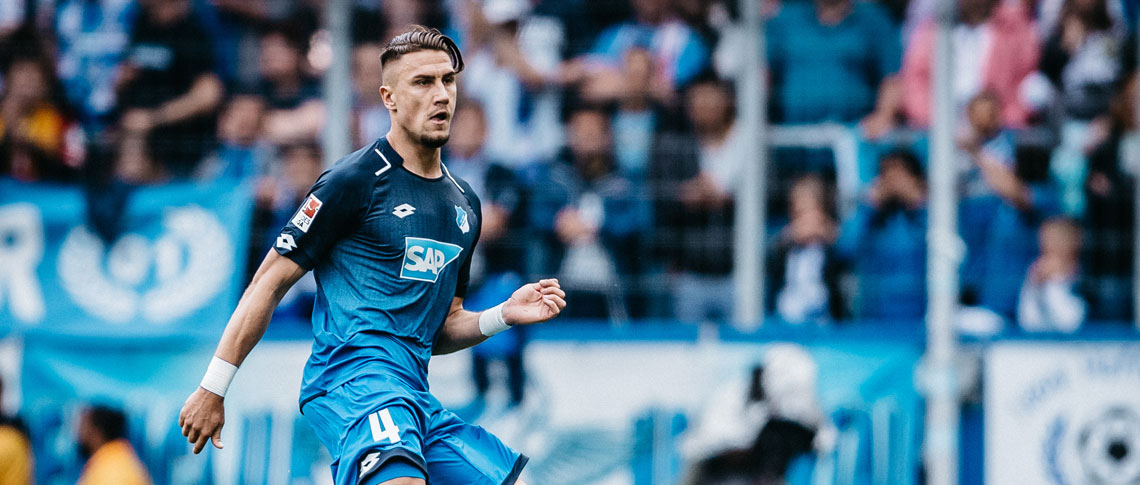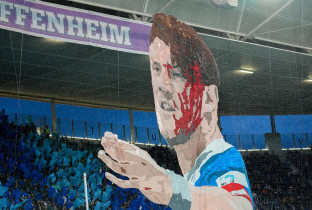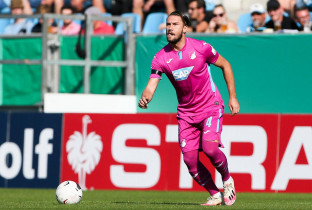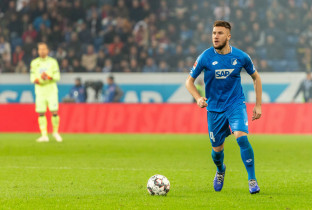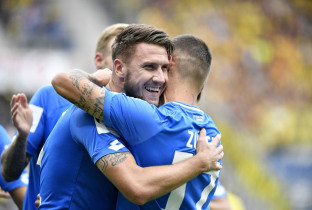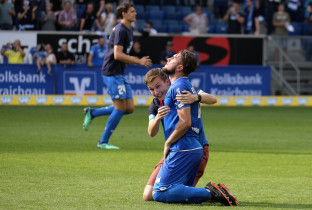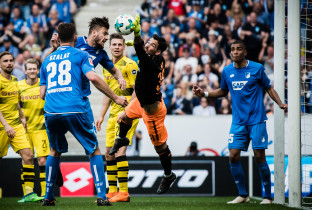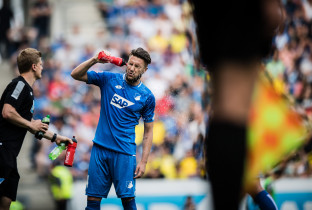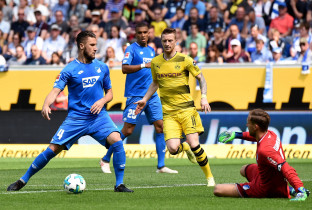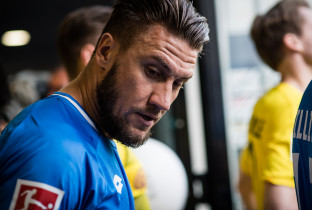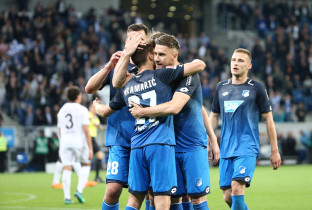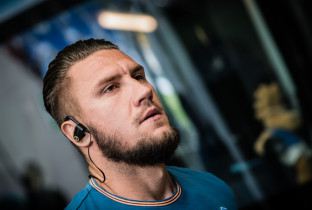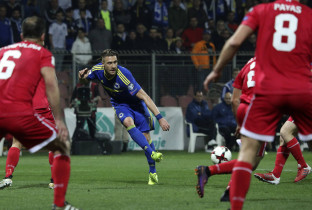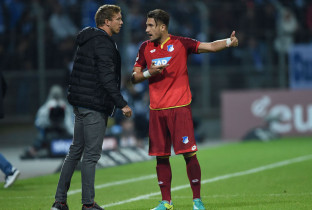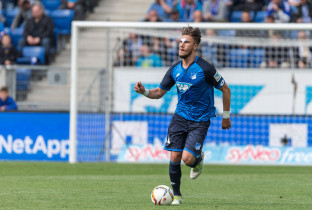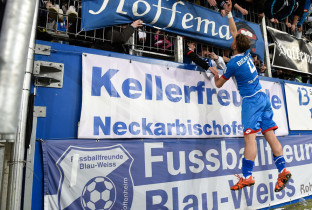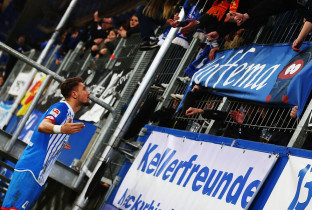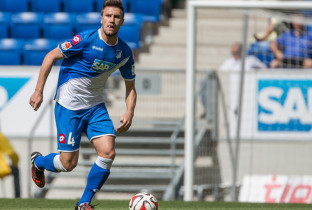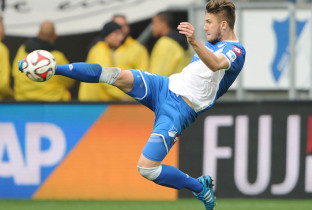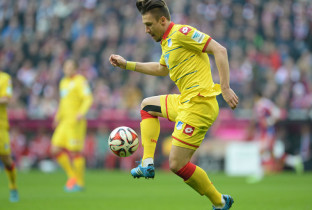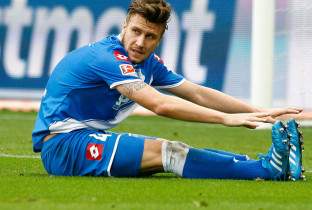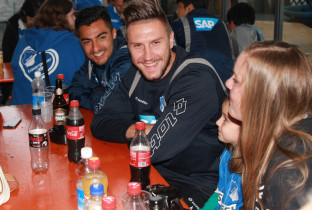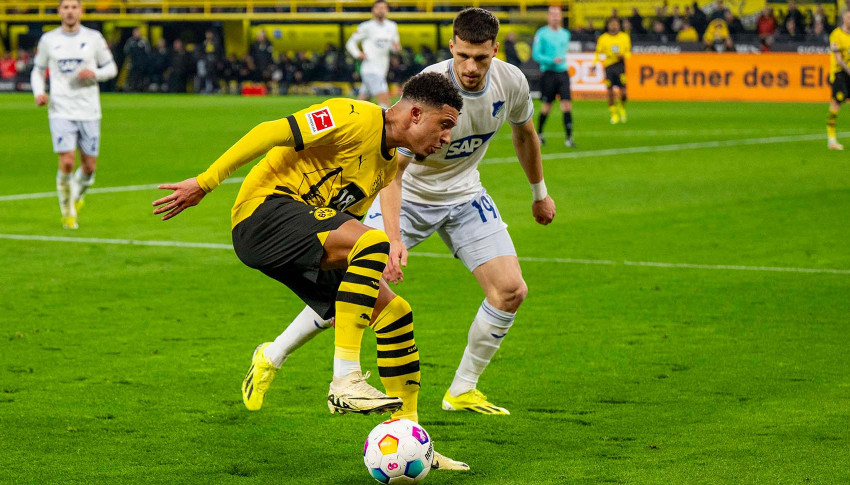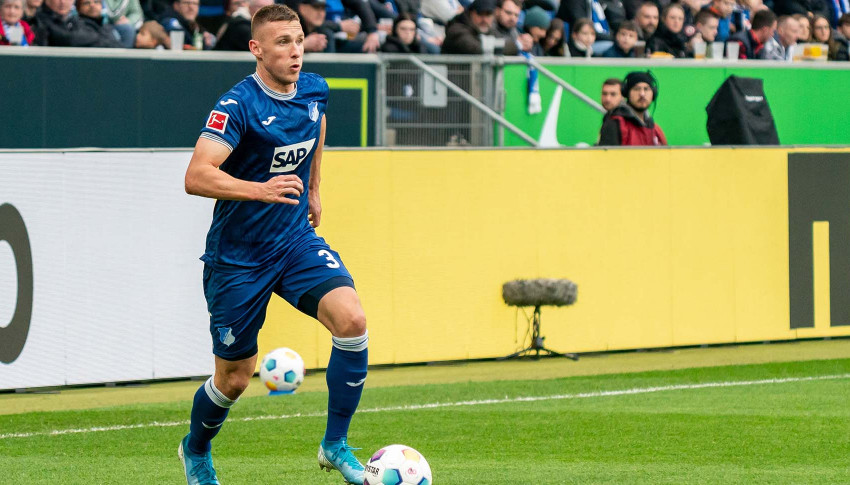Ermin Bicakcic: "You can’t learn to have the right mentality"
Ambition, commitment, mentality – would you agree that these are your strongest attributes?
Ermin Bicakcic: "Absolutely; my mentality especially is what defines my characteristics - you can’t learn how to have a strong mentality, you’re either that kind of person, or you’re not. On the pitch, it might be possible to give off the impression ‘he gets stuck in’, but these are just situational perceptions. Me, I am fundamentally like that, it’s in my nature, it’s an attribute that I bring to every game. You can’t expect this from everyone either: people’s characteristics differ greatly."
Has this always defined you as a footballer?
Bicakcic: "It’s always been my way, even when I was a forward at the VfB Stuttgart academy. I must have been born with this aggression, or maybe my background made me who I am – my parents were refugees and fled to Germany, we had very little and always had to fight."
Have you always enjoyed a fifty-fifty challenge?
Bicakcic: (laughs) "No, I did used to play football to show off my skills, but I could just never take losing: I always knew when my skill wasn’t enough that I had something else up my sleeve: my winning mentality. So with time, it became ever clearer to me that my tireless desire to win was my strength. It became more and more important to me that no one could say “Ermin didn’t give his all." Even though this should be a given in football, I’ve noticed throughout my career that it’s not the case for everyone."
Are the attributes commitment and hunger for success more common for defenders?
Bicakcic: "You can’t put it like that, no. You can’t question the mentality of technical players like Özil and Kroos, or Kerem Demirbay and Nadiem Amiri for us, just because they’re always spraying the ball around. You need players like that – they also give their all to win games, they just express their hunger and desire differently, in different situations: for example, if they bend a free-kick into the top corner in stoppage time. Those are their moments, and that’s when I expect them to deliver; you guys don’t spend 90 minutes sliding around putting in tackles, but you’re there for us when you’re in front of goal, or you can play the killer pass. In the end, it has to fit together: Bicakcic’s mentality in the tackle, Demirbay’s ambition from the free-kick, Kramric’s passion in the step-over – if it all works, the team will be successful."
Are you proud of your attributes?
Bicakcic: "I would never change the way I am. Obviously, I’ve learnt a lot along the way, made some mistakes, but they’re all part of the process. They’re the reason I can now say at 28 years of age that I’ve played over 100 Bundesliga games and haven’t once changed the way I play. It’s extremely important to be true to yourself – I have to be able to look at myself in the mirror when I come home. If I have to look away, then something’s not right – this should never be the case."
You’ve really earned your nickname ‘Eisen-Ermin’ (Iron Ermin). Do you see it as an personal achievement?
Bicakcic: "It made me smile at first, I never expected to get a nickname, but I realised it was a compliment - a recognition of my hard work. So yes, I see it as an honour."
Do you ever get the feeling that people undermine you with the nickname, as though to say: All he can do is slide-tackle...?
Bicakcic: "Definitely, 100 percent. People are quick to put others in a box and label them because they put in hard tackles, but I don’t just stand at the back like the old-fashioned 6 foot something centre-backs, hoofing the ball up the pitch and following orders to bully centre-forwards out of the game. That’s not possible nowadays – the game doesn’t have players like that anymore. I would never see myself as your classic sweeper. Obviously I am aware that I’m not pulling off Zidane tricks in the midfield, dishing out nutmegs left and right: I’m realistic."
There’s less need for fighters like yourself nowadays, but do you think your teammates are grateful to have you in the team?
Bicakcic: "I notice how players react to things I do on the pitch: If I put in a hard tackle, my more technically gifted teammates look at me and suddenly start to put in the tackles as well. It makes me realise: ‘Oh look, I switched them on’... So I set an example in that regard. The players see how someone with the right attitude is throwing himself into tackles and giving his all for the team in order for them to decide the game for us up front. The motto goes: He’s fighting for us, we can’t let him down. That’s an incredible feeling, when you’ve got a reputation like that. I love how the players here give their all for each other – it’s the best, better than just being grateful."
Not so many wins on the board this season. Too often, a lead hasn’t resulted in a win – does this have anything to do with mentality as well?
Bicakcic: "It’s not as simple as that. You can have a plan of how to play against a certain opposition, but football has its own plans as well. When Bayern München lost the Champions League final 2-1 to Manchester United, it certainly wasn’t down to the players not wanting to win enough, nor was it down to having the wrong game plan. Football has its own ideas, writes its own stories. This season, generally speaking, we have been derailed a little – we haven’t always been able to perform to the best of our ability. We’ve relied on our quality too much and just thought: we’ve done it before, we’ll do it again. The past means nothing though – you have to prove yourself from scratch every weekend and give everything to write another successful chapter. Too often this season, we’ve been caught hoping things will go our way in the end."
Have you all learnt from this?
Bicakcic: "Yes, because it can’t happen anymore – we can’t give any less than our all, from start to finish. We need to be able to say to ourselves after every game that we did everything we could – you can lose the odd game, if the opposition is just better, but we’ve taken too lax an attitude at times and relied too much on one another."
Atletico Madrid coach Diego Simeone’s motto is: "Effort is non-negotiable.”
Bicakcic: "Exactly. When the technical side of things aren’t working, the step-overs aren’t coming off, then at least we can always chase and be aggressive. That’s when I expect my skilful teammates to show the most basic element of any team sport and fight with the rest of us to see out a 1-0."
These are ancient footballing virtues in Germany – the kind that helped Germany win World Cups. Nowadays, Germans play nice football – is there a lack of winning mentality in your opinion?
Bicakcic: "Football is supposed to be nice to watch, but someone putting in a big tackle, playing full of adrenalin has been lost a little with time. This is partly down to less honest blokes being on the pitch. There are a lot of similar players, all following each other. I get the feeling that players aren’t able to develop their own personality and develop freely."
Why is that?
Bicakcic: "Everyone is told to behave in a certain way – there are fewer and fewer players with their own individual characteristics, but you need players like that in your team. The fans want players like that as well. Nowadays you get the impression players stand in front of the camera and read off a script. No one’s talking freely, showing the kind of emotions that make competitive sport so great. It’s not authentic for me anymore.
Do you think the young generation’s development could benefit from some humility?
Bicakcic: "They seem to have more talent than we did and benefit from better coaching as a result, but in order for them to go their own way, you need to understand the difference between pushing and encouragement. It doesn’t help to push someone so much that they skip many important phases in the making of a good footballer and fail to realise that they still need to work hard for a successful career. German clubs need to beware of that: promoting talents, without letting their heads disappear in the sky. Managers, players and everyone involved at the club has the task of protecting young players from themselves."








